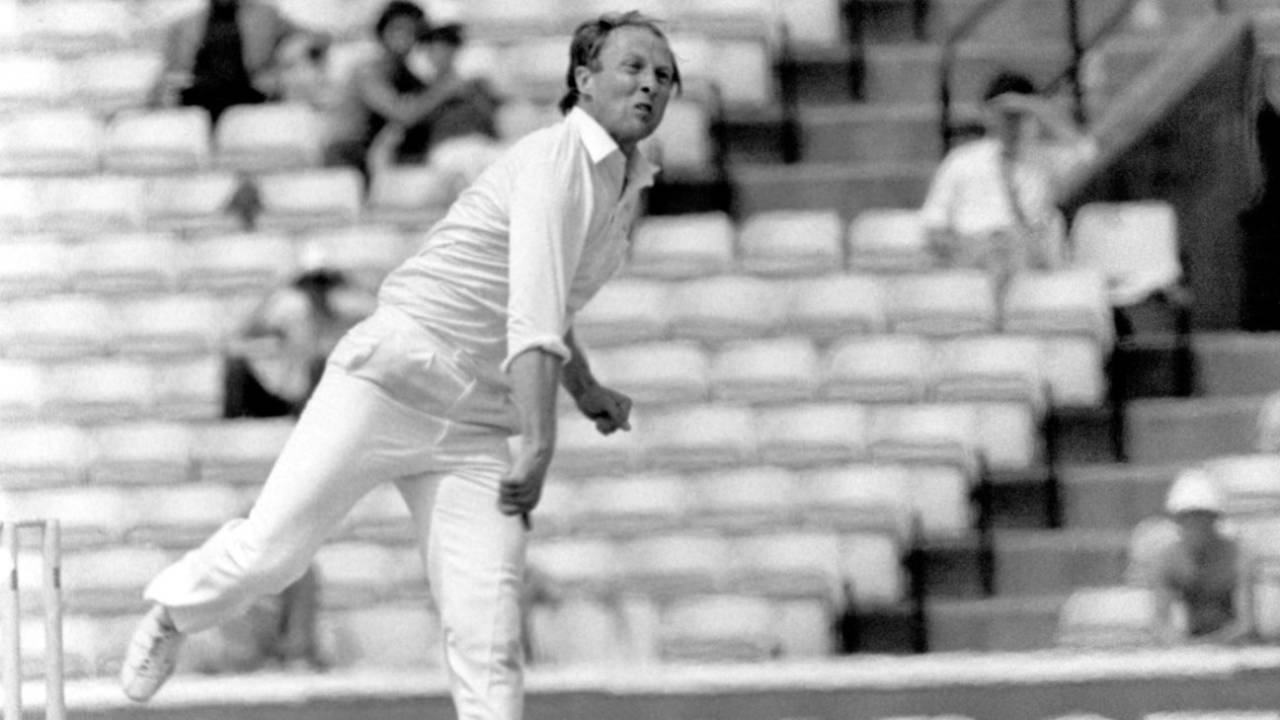As though living up to his reputation,
Vic Marks begins this delightful book by recalling an occasion in 1974 when he marvelled at a cricketer more talented than himself. Admittedly the player in question was
Viv Richards, who was better than almost everybody, but it is still a typical observation from an allrounder who frequently gave the impression that he could not believe he was mixing with such cracks. Behind the gentle exterior, one might conclude, there is an even more gentle soul not trying terribly hard to get out.
But there are two misconceptions here. The first is pardonable but obvious: it is that Marks approximated to a run-of-the-mill county professional (in itself a noble calling, of course) when in fact he was a bloody fine cricketer, good enough to play six Tests and 34 one-day internationals for England and to become only the second Englishman after Tony Lock to play in a winning Sheffield Shield side. Clearly Rod Marsh and the other Western Australia selectors knew a player when they saw one.
Marks, himself, of course, is having none of this and often writes as though his achievements remain mysterious to him. Five years before his engagement with the state side, he played grade cricket in Perth for Bayswater. In one match against Claremont Cottesloe he took the first wicket. His account continues as follows: "We bowled another sixty-two overs after the interval, during which Claremont were dismissed for 118 and the scorecard reveals that my figures were 34.1-21-28-9. Well, it must have turned a bit, I suppose, and I did not bowl much rubbish. Even so, at this distance it's hard to imagine how this ever came about."
The other error is to suppose that an apparently mild man has written a similarly noncommittal autobiography, when in fact this book contains all the acute insight and firm judgements that Guardian readers have come to expect from its author. And Marks has some fine material with which to work. He played alongside some of the best and most ebullient talents of the late 20th century and experienced both the joy and misery of the England tourist. Here he is on the 1982-83 Ashes trip: "It was a wretched time. I can understand how cricketers are more likely to become depressed on tour… The temptation is to conclude that if you keep playing badly you must be a bad person."
Fortunately, the achievements in Marks' career outnumbered the disappointments, and his marvellously wry humour is never far away. He is a master of the paragraph that recounts an event only for the final sentence to offer a pleasing contrast or dry observation on all that has gone before. In 1979, Somerset reached the final of the Gillette Cup and the team invited their long-time fan John Cleese to join them at Lord's. Marks recalls that their guest "sat quietly in a corner of the dressing room, anxious not to be a distraction. A year or two later Jeffrey Archer would not be quite so reticent." Or there is this cherished reminiscence from Marks' schooldays at Blundell's, where he was taught English literature by John Patrick: "When I wrote the required essay on Othello, for example, there would be John's curt assessment at the bottom. 'Not too bad… but where are the quotes?' - a refrain I have heard from a succession of sports editors a few decades later."
If
Original Spin contains three fine chapters on its author's experiences in the media, its most heartfelt passages concern Somerset cricket, its triumphs in the era of Richards, Joel Garner and
Ian Botham, and its
subsequent civil war. Marks is especially acute, here, not least because he was one of the few men who could talk to the captain,
Peter Roebuck, who was one of his oldest friends in the game, and also to the skipper's soon to be sworn enemy, Botham. (Not that it did a scrap of good.) His analysis of Roebuck's part in the business is objective, tough and rather moving. "The club had been torn asunder and it took a long time to recover… I remained friends with him but there was always a tension on this issue. He always sought affirmation from me that he had taken the right course in 1986 and I was never able to give it to him."
Thankfully Marks is still enthralled by the game and still cares enough about it to reserve some of his sharpest analysis for The Hundred, which he dismisses as "a patronising gimmick rather than a radical change", and one that will result in even fewer first-class games being played in the prime months of June, July and August. Marks views the innovation as unnecessary, and that is putting a kind gloss on his prose. He remains the pleasantest of press-box companions, yet behind the engaging exterior lies a sharp mind whose thoughts are clearly explained in this fine book. His deepest emotions regarding the game are revealed in his two cricketing cravings: "that Somerset should win the Championship and that the Championship should still be worth winning". Most supporters of the game would be happy to see the first of these satisfied but accommodating the second would meet with near unanimous approval. Vic has spoken for us all.
Original Spin
By Vic Marks
Allen and Unwin
336 pages, £20

